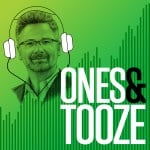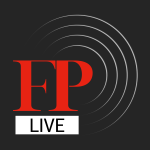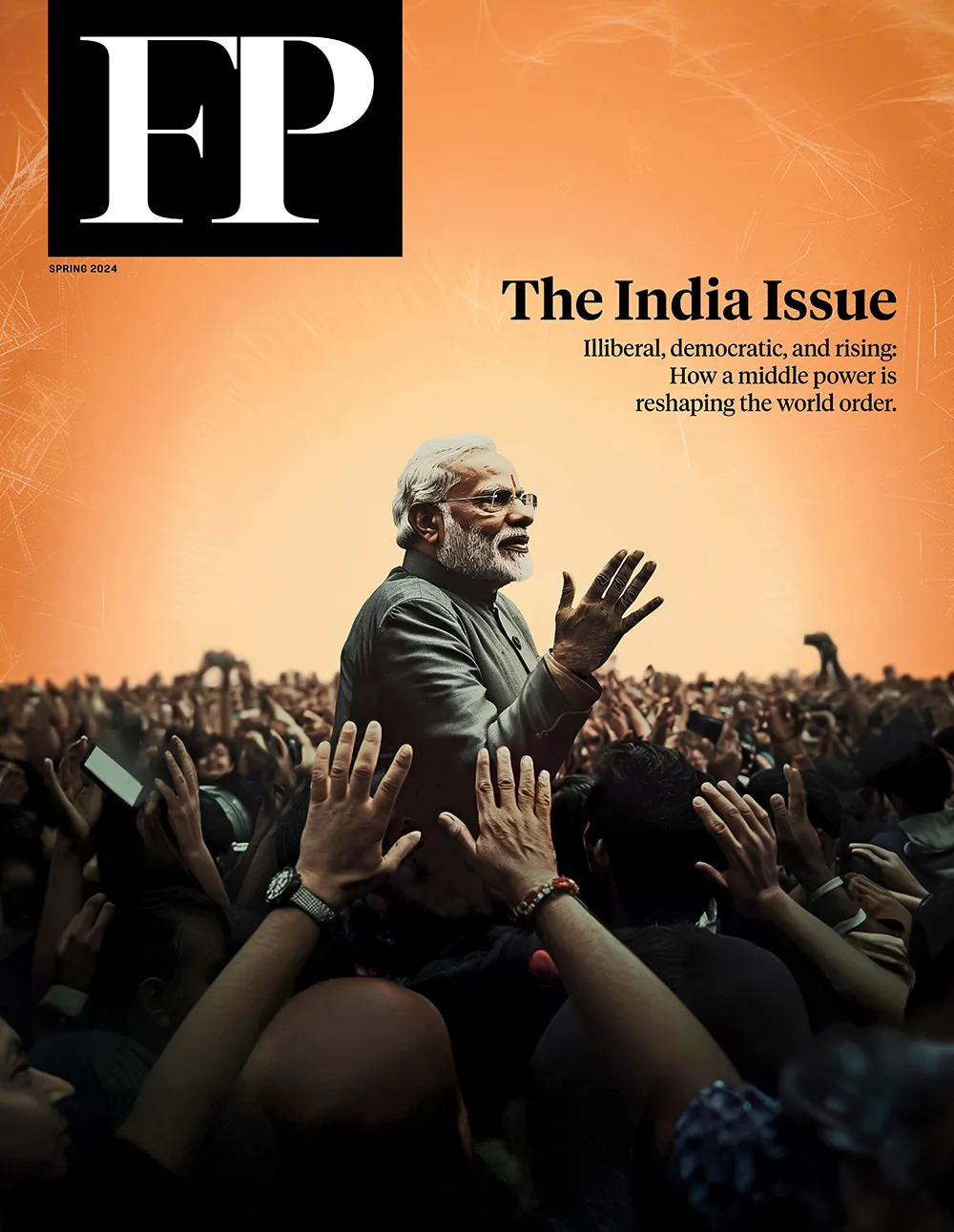South Korea’s Conservatives Aren’t Any Tougher on China or North Korea Than Liberals
The new Yoon administration will stick to the same line Seoul always follows.
The switch in South Korean leadership from the liberal Moon Jae-in to the conservative Yoon Suk-yeol has prompted many international observers to predict significant changes in Seoul’s foreign policy. These analysts, who painted the Moon administration as soft on North Korea and China, predicted that Yoon will take a tougher stance against South Korea’s two communist neighbors.
The switch in South Korean leadership from the liberal Moon Jae-in to the conservative Yoon Suk-yeol has prompted many international observers to predict significant changes in Seoul’s foreign policy. These analysts, who painted the Moon administration as soft on North Korea and China, predicted that Yoon will take a tougher stance against South Korea’s two communist neighbors.
Don’t hold your breath. Of course, the Yoon administration will make some changes. But historically, South Korea’s foreign policy has largely maintained the same framework, regardless of the party that occupied the presidency, and an overtly adversarial posture against North Korea and China is simply not in the cards. To the extent there will be changes under the Yoon administration, they will be on the margins rather than at the foundation, and they’ll be driven by Yoon’s personality as much as his political ideology.
The role South Korea’s domestic politics play in its foreign policy is often reduced a caricature. In international commentary, South Korea’s liberals are usually portrayed as anti-American and appeasing to North Korea, while conservatives are viewed as pro-America and tough on North Korea. With the emergence of authoritarian China as a global superpower, the latest stereotypes also portray South Korea’s liberals as kowtowing to Beijing while conservatives stand tall.
In a recent four-part series for the Korea Economic Institute, I explained how this caricature emerged and why it is misleading. South Korea’s liberals, who owe their political heritage to the democracy movement against military dictators, historically had little chance to interact with U.S. leadership. On the other hand, the conservatives, who are heirs of dictators, have interacted with Washington with decades, free to paint the democracy activists as radical communist sympathizers. U.S. mistrust of South Korea’s liberals went so far that during the Roh Moo-hyun administration in the early 2000s, D.C. foreign-policy think tanks often referred to Roh’s foreign-policy team as “the Taliban.”
It is true enough that South Korea’s conservatives and liberals have different political philosophies and policy preferences, which are a major influence in their formulation of foreign policy. But equally or more important are the structural factors that modulate those instincts into a set of practical, real-world policy initiatives, such as the need to prevail in the electoral politics and a cadre of professional diplomats who remain mostly the same despite administration changes. This is as true of the Yoon administration as any other: New Second Vice Minister of Foreign Affairs Lee Do-hoon was the Moon administration’s special envoy for North Korea, for example.
The net result is an “apparent consensus,” as the Korea Economic Institute’s Hae Kyung Ahn described it, under which the broad strokes of South Korea’s foreign policy remain essentially the same, regardless of who the president is: (1) a close relationship with the United States, (2) a dual approach to North Korea that responds strongly to military provocations while avoiding a war, and (3) strategic cooperation with China focused on trade while avoiding an adversarial posture.
Thus, the supposedly appeasing liberals of South Korea have scored major military victories against North Korea, such as the Yeonpyeong Island skirmishes in 1999 and 2002, in which the South Korean Navy under the Kim Dae-jung administration sank the attacking North Korean naval ships. On the other hand, the supposedly “tough” conservatives often worked to cooperate with the North. President Roh Tae-woo issued the July 7 Declaration in 1988 that called for inter-Korean exchange and free trade between the two Koreas, and President Lee Myung-bak allegedly sought an inter-Korean summit with a promise for cash shortly after a North Korean submarine apparently attacked and sank the South Korean Navy corvette Cheonan in 2010, killing 46 sailors.
The liberal Roh administration officials were given the “Taliban” nickname because of their supposed anti-American attitude, but it was Roh who implemented major pro-U.S. policies such as the Korea-U.S. Free Trade Agreement and sending South Korean troops to the Iraq War.
Meanwhile, conservative President Park Geun-hye was the only leader of a liberal democracy who attended an important military parade in Beijing in 2015, applauding the marching People’s Liberation Army while standing next to China’s Xi Jinping and Russia’s Vladimir Putin. For all the accusations of being pro-China, the liberal Moon oversaw a vast expansion of South Korea’s military, expanded the scope of the South Korean-U.S. alliance to include peacekeeping in the Taiwan Strait, and made South Korea the first Asian country to join NATO’s cyberdefense center.
Notwithstanding his campaign rhetoric, Yoon is unlikely to deviate from this pattern. He indulged in hawkish chest-thumping during the presidential race, claiming he would “reconstruct the South Korean-U.S. alliance that collapsed under the Democratic administration,” conduct a preemptive strike of North Korea, and deploy additional Terminal High Altitude Area Defense (THAAD) missile batteries to defend Seoul, despite China’s opposition, which produced a devastating economic boycott by Beijing in 2017.
It is highly unlikely that Yoon was serious. At television debates, he repeatedly demurred when asked exactly where a new THAAD battery would be placed, knowing that he would certainly face opposition (and loss of votes) if he selected a specific site. When Yoon wrote an Instagram caption that sneakily signaled the slogan “myeolkong” (“destroy communists”), his campaign staff took pains to explain that by “communists,” Yoon did not mean China. “China is our friend; he meant North Korea, which is our enemy,” said Assembly Member Kim Jae-won of the conservative People Power Party, which, according to Kim, has been a sister party of the Chinese Communist Party for over 20 years.
In his more deeply considered remarks, there is little indication that Yoon is ready to depart from Seoul’s bipartisan foreign-policy consensus. Shortly before the election, he published an essay in Foreign Affairs magazine outlining his foreign-policy principles. Despite chiding the Moon administration for making “overly accommodating gestures meant to placate China,” Yoon also pledged a “new era of Seoul-Beijing cooperation” that does not damage South Korea’s significant trade relationship with China or the potential of Beijing’s cooperation in North Korea’s denuclearization. In his inauguration speech, Yoon said “the door of dialogue will remain open so that we can peacefully resolve this threat” of North Korea’s nuclear program; he did not mention threats against North Korea, like a preemptive strike.
Several observers pointed to the Moon administration’s reluctance to confront human rights issues in Xinjiang and Hong Kong, or its nonparticipation in the Quad defense grouping, as a sign that Moon was pro-China. But when Yoon met with China’s Ambassador Xing Haiming after his election, Yoon did not comment on Xinjiang or Hong Kong either; instead, he was happy to snap a photo with Xing Haiming while holding up a congratulatory letter from Xi Jinping. When a Japanese media outlet reported that the Yoon administration inquired about attending the Quad summit as an observer, his transition committee was quick to deny it.
To be sure, there are ways in which Yoon will leave his own mark on South Korea’s foreign policy. But it is likely to be driven more by his personality as a politician, rather than any deeply held vision of international affairs.
Unfortunately, there is no indication that Yoon has any fine-tuned foreign-policy vision. As a career prosecutor, he has only been in politics since June of last year and has no experience in diplomacy. This showed in a recent meeting with U.S. President Joe Biden, when Yoon cluelessly put his hand on his chest during the U.S. national anthem, a moment that was made more embarrassing when it was displayed on Biden’s Instagram. Nor would anyone mistake Yoon, whose nickname during the presidential campaign was “A Gaffe a Day,” for a forceful orator on the international stage. After winning the election by taking advantage of grievances over real estate tax and of aggressive misogyny, Yoon has no meaningful foreign-policy mandate. Unlike Moon, the son of North Korean refugees, Yoon does not have a personal stake in inter-Korean affairs either.
All of this make it seem likely that, despite Yoon’s soaring rhetoric about his vision of South Korea being a “global pivotal state,” the diplomacy of his administration will be marked by passivity. Although Yoon will have a competent and professional diplomatic staff, ultimately it is the president who sets the agenda and makes decisions. Especially in the first few years of his term, an inexperienced president who does not prioritize foreign policy would mean a reactive diplomacy, drifting down the currents of international development rather than sailing toward a proactively chosen direction.
Although Yoon has only been the president for a few weeks, early signs of this passivity are visible. New presidents of South Korea typically issue a large list of policy tasks at the beginning of their terms. Out of Yoon’s 110 tasks, only three deal with North Korea, fewer than the four tasks devoted South Korea’s real estate market. (To compare, six out of Moon’s 100 tasks were about North Korea.) All of Yoon’s policy statements regarding North Korea, including his inauguration speech, trot out the same “denuclearization in exchange for economic assistance” formula that did not persuade North Korea’s Kim Jong Un when Moon and his U.S. counterpart Donald Trump tried it. Yoon may well be on his way to implementing Seoul’s own version of “strategic patience”: doing the minimum necessary to stave off a nuclear war while hoping something bad happens to the Kim regime.
That may not be such a bad result from a “do no harm” perspective; a missed opportunity is bad, but it’s not as bad as an affirmatively poor decision. But trouble may come when Yoon is compelled by circumstances to make a binary choice with major consequences. North Korea may go beyond simply testing missiles and launch an attack that costs lives, as it did with the Cheonan. China may invade Taiwan and blockade crucial shipping lanes in the South China Sea to starve South Korea and Japan of petroleum. Can Yoon skillfully guide Seoul’s path through such treacherous times, in which one decision could end up defining an era? We will be lucky if we never find out.
This article is adapted in part from the author’s four-part series “The Foreign Policy Outlook of South Korean Progressives” for the Korea Economic Institute.
S. Nathan Park is a Washington-based attorney and nonresident fellow of the Quincy Institute for Responsible Statecraft.
More from Foreign Policy

Saudi Arabia Is on the Way to Becoming the Next Egypt
Washington is brokering a diplomatic deal that could deeply distort its relationship with Riyadh.

What America’s Palestine Protesters Should and Shouldn’t Do
A how-to guide for university students from a sympathetic observer.

No, This Is Not a Cold War—Yet
Why are China hawks exaggerating the threat from Beijing?

The Original Sin of Biden’s Foreign Policy
All of the administration’s diplomatic weaknesses were already visible in the withdrawal from Afghanistan.






Join the Conversation
Commenting on this and other recent articles is just one benefit of a Foreign Policy subscription.
Already a subscriber? .
Subscribe Subscribe
View Comments
Join the Conversation
Join the conversation on this and other recent Foreign Policy articles when you subscribe now.
Subscribe Subscribe
Not your account?
View Comments
Join the Conversation
Please follow our comment guidelines, stay on topic, and be civil, courteous, and respectful of others’ beliefs.